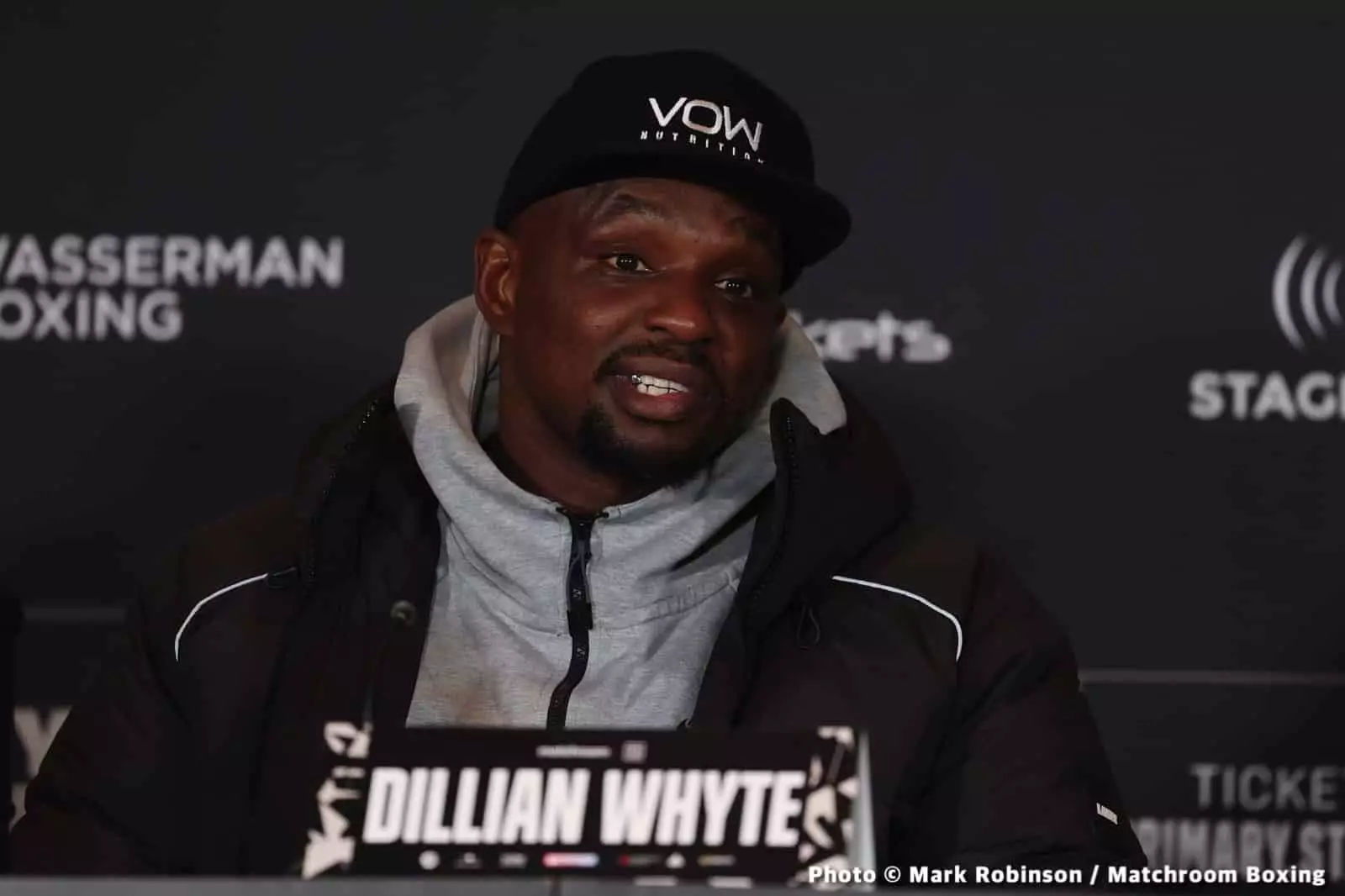In the realm of heavyweight boxing, defeat is often perceived as a harbinger of decline, leading to calls for early retirement. However, Dillian Whyte stands as a counterargument to this idea, calling for a more nuanced perspective on losses in the ring. As he prepares for his upcoming bout against Ebenezer Tetteh in Gibraltar on December 15, Whyte confidently asserts that he is not finished yet—and neither is his fellow heavyweight, Anthony Joshua. Despite Joshua’s recent setback against Daniel Dubois, Whyte urges fans and critics alike to recognize the inherent value in competition, especially when two top-tier fighters face off against one another.
Whyte highlights an important facet of boxing: the thrill of marquee matchups should eclipse the emotional response to someone’s defeat. The heavyweight landscape has shifted dramatically, with fighters like Agit Kabayel and Frank Sanchez entering the spotlight. This resurgence in competitive bouts is significant for the sport. Instead of obsessing over the outcome of a single fight, Whyte argues for appreciation of the larger narrative unfolding in heavyweight boxing. He emphasizes that the atmosphere now is ripe for fights that captivate audiences, which mirrors the golden eras of the past when legendary bouts were commonplace.
Despite his knockout loss to Dubois, Whyte believes that Joshua possesses not only the physical attributes of a champion but also the resilience necessary to bounce back. He points out that Joshua’s demonstrated power and athleticism indicate he still holds potential for future success. Luke’s remarks suggest that the former champion is, in fact, a big draw for the sport, maintaining an audience appeal that could lead to lucrative fights and renewed title aspirations. Whyte’s assertion that Joshua remains a potent competitor challenges the negative rhetoric that often accompanies defeat in combat sports.
Strategic Rivalry: A Second Encounter?
While Whyte’s comments may largely stem from a genuine belief in the merits of perseverance, one cannot overlook the strategic aspect of his statements. By advocating for Joshua’s return to the ring, Whyte also subtly positions himself for a potential rematch. Both fighters are near in age and have undoubtedly crossed paths in their careers before. A successful comeback for both could plant the seeds for a highly anticipated rematch, ideally positioned in the boxing calendar. Eddie Hearn has hinted that Joshua will soon return, further fueling speculation about future face-offs.
The Culture of Resilience in Heavyweight Boxing
Ultimately, Dillian Whyte’s reflections offer a refreshing perspective on the dynamics of heavyweight boxing today. Such discussions should shift away from the outdated notion of immediate retirement after a loss. Instead, they should embrace the potential for revitalization. Every fighter, including Joshua and Whyte, has the opportunity to redefine their legacy through perseverance and determination. As the heavyweight division continues to evolve, it’s crucial for fans and analysts alike to recognize the depth and resilience of its competitors, rather than limiting narratives to the highs and lows of their careers.


Napsat komentář